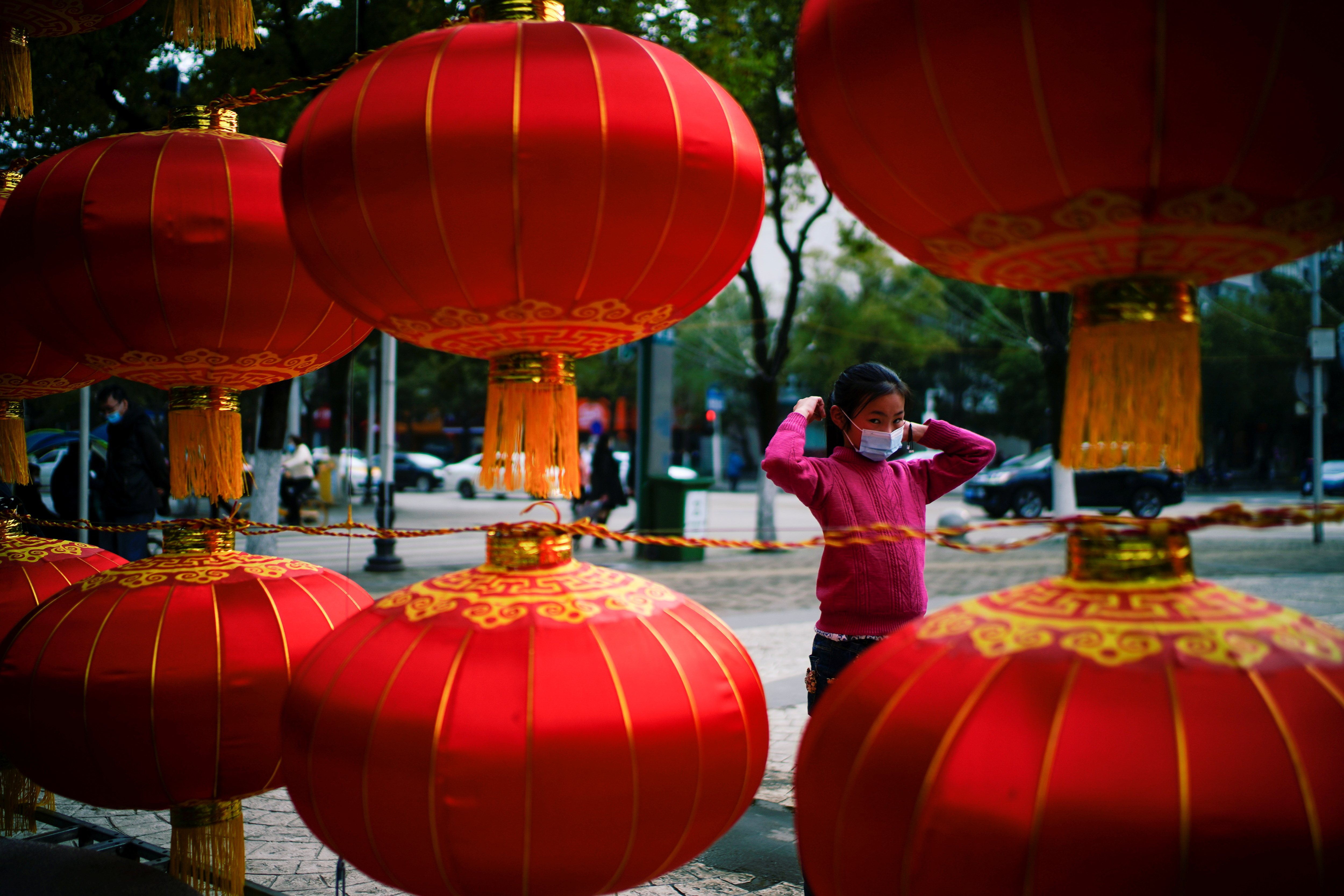China’s hotels and restaurants are bracing themselves for a lacklustre Lunar New Year holiday, as government curbs look set to deal a blow to domestic travel this year.
The week-long holiday that begins on Friday traditionally kicks off one of China’s biggest spending sprees, surpassing 1 trillion yuan ($155 billion) in 2019, government figures show.
“Our business is barely half of what we usually see before the Lunar New Year,” said Lin Haiping, founder of Baheli, a beef hotpot chain with more than 100 outlets in 16 cities.
Read more: Bitcoin extends record streak in Asia trading; Ethereum hits peak
“We are in a dilemma as we don’t want to have too many customers,” he added, citing the advice against large gatherings as a reason for avoiding promotional offers to drum up business. “I’m afraid of having too many people under the current policies.”
The tougher measures spawned by recent Covid outbreaks threaten a hit to transport and tourism during the holiday that could shave as much as 150 billion yuan ($23 billion) from household spending, brokerage CITIC Securities has said.
Infections have recently fallen from a mid-January peak, when the daily number of locally transmitted Covid-19 cases hit their highest in more than 10 months.
Many people have cancelled holiday flights or trips back to hometowns after local authorities tightened measures for arrivals, such as requiring virus testing.
The cancellations have more than halved the cost of flights to duty-free beach destination Sanya on the southern island of Hainan, a mecca for luxury goods, as the pandemic deters Chinese from overseas travel.
TRAVEL SLOWDOWN
Capri Holdings, the owner of luxury brands Jimmy Choo and Versace, told analysts it expected strong sales performance from outlets on Hainan, though “not quite as strong as we had all anticipated,” thanks to the likely slowdown in travel.
The transport ministry has estimated passenger trips will fall 40% from the 2019 figure during the 40-day spring travel season, when millions of migrant workers normally head from the cities back to homes in the countryside.
Mainland China reported more than 2,000 domestic virus infections in January, but recovery remains on track in the world’s second-largest economy, which grew 2.3% on the year in 2020.
Government warnings against large gatherings, such as weddings or annual company parties, have also driven down cancellations.
“We are open, but there is no difference with being closed,” said Shen Xiaolin, the manager of Qingxi Guesthouse in the eastern province of Zhejiang.
ZERO GUESTS
The 17-room boutique hotel has no holiday guests this year, a far cry from previous years, when it was booked out the entire week.
As many people opt to stay put in their place of work, some businesses are banking on in-city consumption for some reprieve, but they must still grapple with the pressure to limit patrons.
Hotpot chain Haidilao is among the firms turning to technology to ease such headaches.
It has launched an online streaming service offering video conferencing facilities for diners to feast simultaneously with family and friends in outlets in other cities.
The service is available in 52 restaurants across 41 cities in China, as well as five in Indonesia, Malaysia and Thailand.
“We are trying to make people feel they are together, even though they are physically apart,” said Zhou Zhaocheng, the firm’s chief strategy officer.
- Reuters
























